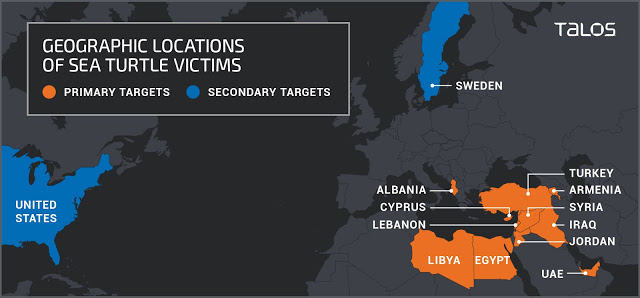Posted by Martijn Grooten on Nov 7, 2019
The "phonebook of the Internet" has well outlived physical phonebooks, but that doesn't mean DNS is without its issues. There is a joke among incident responders that, even when you're sure the problem isn't DNS, it still ends up being DNS.
Aside from configuration issues, DNS is also a very valuable target for adversaries. In a paper presented at VB2019, Cisco Talos researchers Warren Mercer and Paul Rascagnères looked at two recent attacks against DNS infrastructure: DNSpionage and Sea Turtle. The latter attack involved the compromise of one country's DNS registry.
 April 2019 Sea Turtle victimology map.The Sea Turtle research also won the researchers and their team the sixth annual Péter Szőr Award; they received the award during the VB2019 gala dinner.
April 2019 Sea Turtle victimology map.The Sea Turtle research also won the researchers and their team the sixth annual Péter Szőr Award; they received the award during the VB2019 gala dinner.
Warren and Paul were presented with the award during the VB2019 gala dinner.
Today we publish Warren and Paul's paper in both HTML and PDF format. We have also uploaded the video of thier VB2019 presentation to our YouTube channel.